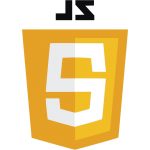popular Java frameworks:
- Spring Framework: Spring is arguably the most widely used Java framework. It provides comprehensive infrastructure support for developing Java applications. Spring’s modular architecture allows developers to choose the components they need and integrate them seamlessly. It includes features like dependency injection, aspect-oriented programming, and robust support for building RESTful APIs.
- Spring Boot: Built on top of the Spring Framework, Spring Boot simplifies the process of setting up and configuring Spring applications. It offers auto-configuration, which minimizes boilerplate code and allows developers to quickly build production-ready applications with minimal setup.
- Hibernate: Hibernate is an object-relational mapping (ORM) framework that simplifies database interactions in Java applications. It provides a powerful way to map Java objects to database tables and perform database operations using an object-oriented approach. Hibernate also offers features like caching, lazy loading, and transaction management.
- Apache Struts: Apache Struts is a framework for developing web applications following the Model-View-Controller (MVC) architecture. It provides a robust framework for building scalable and maintainable web applications. While its popularity has decreased in recent years with the rise of alternatives like Spring MVC, it’s still used in some legacy applications.
- Play Framework: Play is a lightweight, stateless web framework built on Java and Scala. It’s designed for building web applications with a focus on productivity and developer-friendly features. Play follows a reactive programming model and provides built-in support for asynchronous I/O, making it well-suited for high-performance, real-time applications.
- Vert.x: Vert.x is a reactive, event-driven framework for building asynchronous, scalable, and resilient applications on the JVM. It supports multiple programming languages, including Java, Kotlin, Groovy, and JavaScript, and provides a powerful toolkit for building distributed systems, microservices, and APIs.




